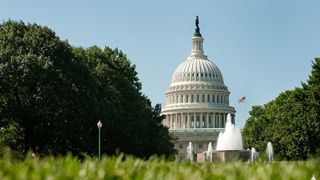Open Technology Institute Brands USF Cap Threat to Closing Digital Divide

New America's Open Technology Institute (OTI) said the FCC's proposal to cap the Universal Service (USF) Fund is extremely dangerous. That came in reply comments on the FCC's proposal to cap the fund.
The "danger" is to the programs that rely on the funds to get broadband to rural communities, the poor, and students.
USF is the government's advanced telecommunications subsidy program funded by carriers and, ultimately, by fees passed along to their customers.
There are currently budgets on the four sub-groups of subsidies, with moieties divvied up among: High Cost, low income (Lifeline), Rural Health Care and Schools and Libraries (E-rate), but no cap on the program's overall budget.
Back in May, FCC chair Ajit Pai circulated a proposal to cap the fund, seeking input on whether that was the right way to go. OTI strongly opposes an overall cap. For his part, Republican commissioner Michael O'Rielly argues that capping the fund at the proposed $11.42 billion puts it "well-above current disbursement levels," and leaves a nearly $2 billion cushion for potential spending.
OTI says that cap will lead to infighting among needy constituencies.
"The NPRM is seeking to implement an overall cap on the entirety of the USF, which (as several commenters noted in the docket) would likely lead to the separate programs having to fight over funding that previously was allocated for each individual program depending on the unique characteristics of the issues each program is tailored to address," said OTI in comments to the FCC.
Broadcasting & Cable Newsletter
The smarter way to stay on top of broadcasting and cable industry. Sign up below
OTI said the cap is both unnecessary and would work against bridging the digital divide, which the chairman has said it one of the FCC's top priorities. If that isn't bad enough, OTI suggests, the move would violate both statute and the intent of Congress.
Contributing editor John Eggerton has been an editor and/or writer on media regulation, legislation and policy for over four decades, including covering the FCC, FTC, Congress, the major media trade associations, and the federal courts. In addition to Multichannel News and Broadcasting + Cable, his work has appeared in Radio World, TV Technology, TV Fax, This Week in Consumer Electronics, Variety and the Encyclopedia Britannica.

